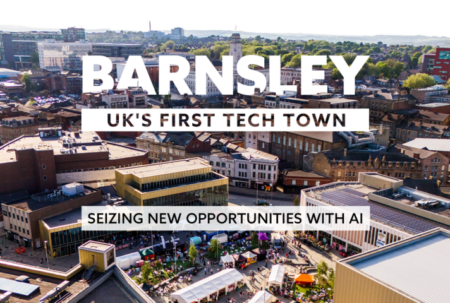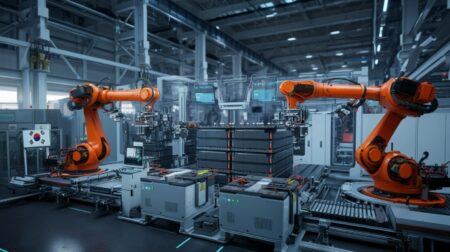The UK government will create a new AI assurance industry backed by an £11m fund and equip regulators to speed approvals using AI under plans set out by technology secretary Peter Kyle in a Mansion House speech.
Kyle said the assurance roadmap is intended to help firms verify that AI systems are “secure and trustworthy”, with funding aimed at building an independent skills base that smaller teams can access.
Government estimates suggest assurance could become a profession worth up to £18.8bn to the economy. Applications for the fund are due to open in spring.
A separate AI regulator capability fund will provide up to £2.7m across five UK regulators, including Ofgem and the Civil Aviation Authority, to help them both use and oversee AI.
Kyle challenged regulators to “use every tool at your disposal to get new products to market quickly, without sacrificing safety”, citing faster airspace clearances for new drone technologies as one example.
In nuclear, the Office for Nuclear Regulation will receive more than £250,000 for a project to enable testing of AI tools in plants, including applications aimed at improving the handling of high-risk nuclear waste.
Compute capacity formed a second pillar of the plan. Kyle said the UK has switched on Isambard, described as the country’s most powerful supercomputer, alongside Dawn in Cambridge, with a national system to be based in Edinburgh.
Overall capacity is targeted to increase twenty-fold by the end of the decade, under a compute roadmap linked to a planned National Data Library.
The government will also push ahead with AI Growth Zones as dedicated hubs for companies, researchers and investors. The first will be at Culham in Oxfordshire, with sites in Wales and Scotland preparing groundworks for full campus-style developments.
Positioning AI as a national competitiveness issue, Kyle said: “Artificial intelligence will shape our economies, our security, and our place in the world… Those who wield it in their national interest – who invest in the right skills and hardware – will be the economic superpowers of the future.”
On skills, he highlighted the TechFirst programme, backed by £187m to bring digital and AI learning into classrooms and reach every secondary school pupil, and a workforce partnership with Barclays, Amazon, BT and Google that aims to train 7.5 million people in AI.
Kyle argued the UK must “innovate not imitate”, adding: “British companies shouldn’t have to wait months for approvals, whilst competitors overseas race ahead. If AI can speed things up, even a little, then we will do everything we can to make that a reality.”
He said private-sector momentum was building, pointing to £14bn of recent investment commitments from data-centre and IT infrastructure firms, and expansion moves by Synthesia, Cohere, OpenAI and Anthropic in London.
The government estimates more than £44bn of investment has been attracted into the UK AI sector in its first 12 months in office.
For robotics and automation, the policy signals include potential for faster certification and airspace access for uncrewed systems, new regulatory sandboxes, and expanded access to sovereign compute.
Kyle summarised the core priorities as “chips, data, [and] software”, with data use to be “safely harnessed” to drive discovery and commercialisation.
“Use every tool at your disposal to get new products to market quickly, without sacrificing safety,” he told regulators, adding that AI assurance should give companies “the tools they need to build trust with both customers and markets”.
Join more than 11,000 industry leaders at Robotics and Automation Exhibition on 25-26 March 2025, at the NEC Birmingham to explore cutting-edge technologies, connect with peers and discover the latest innovations shaping the future of warehousing, manufacturing, engineering and logistics. Register for free now to secure your place at this premier event!









